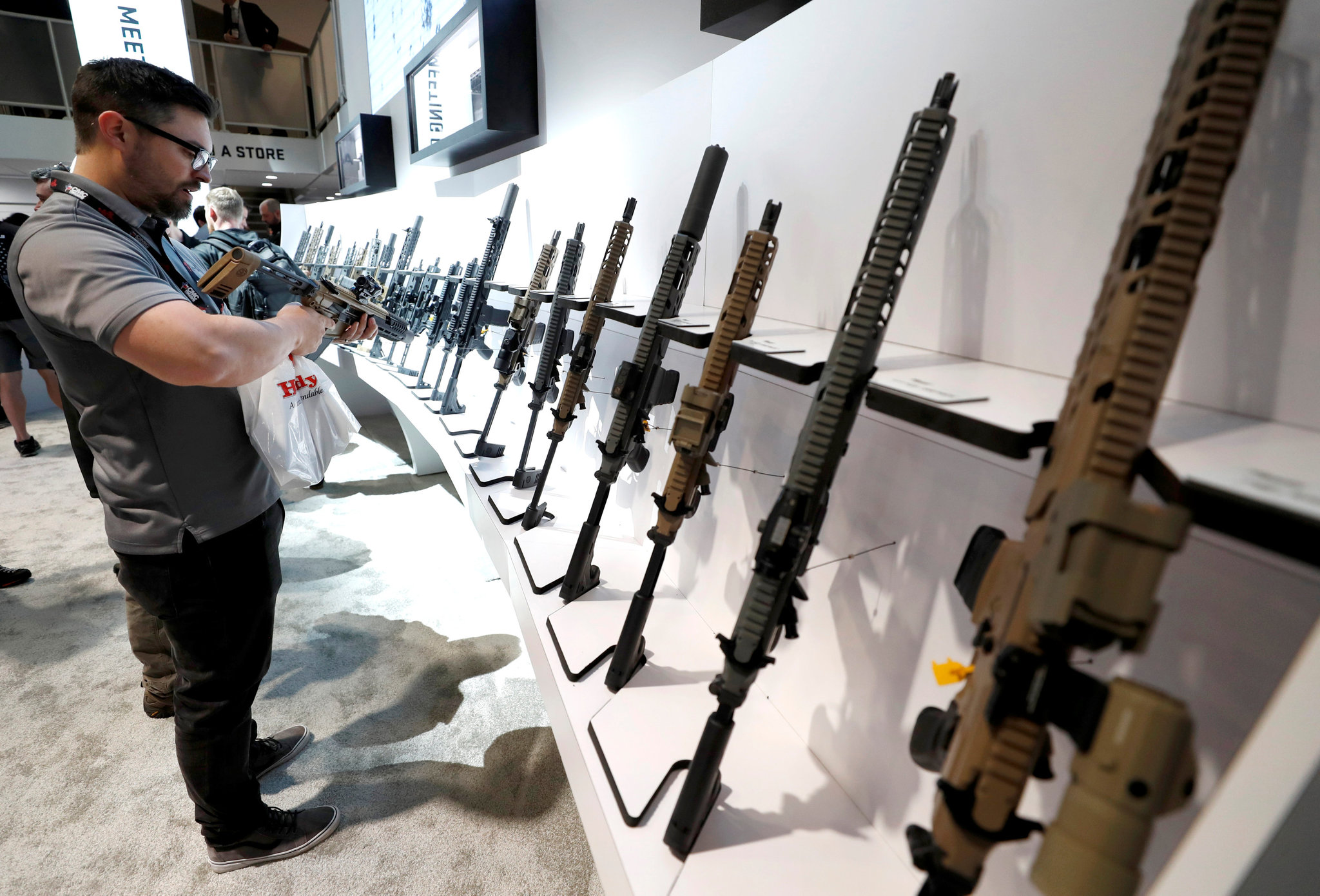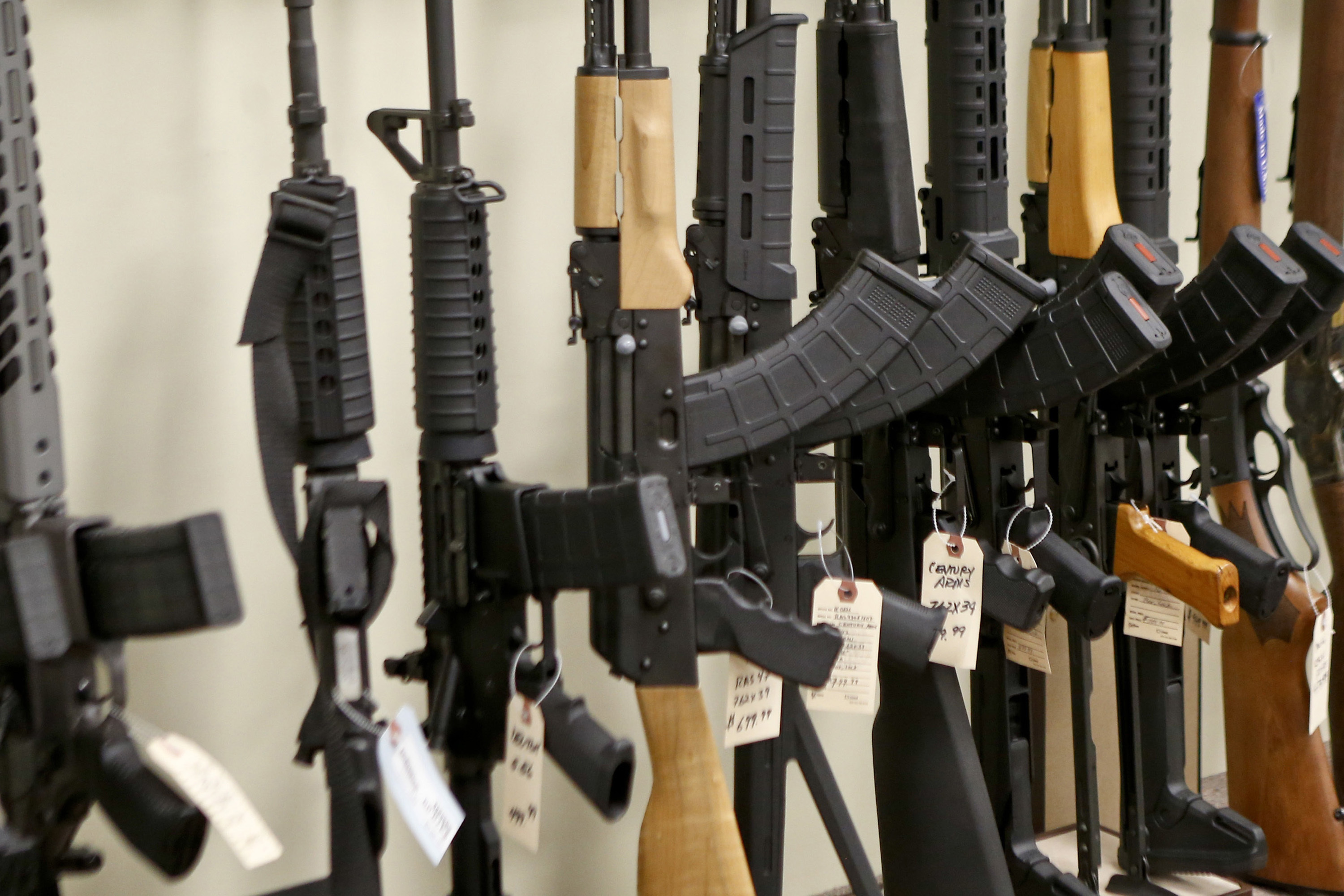New Gun Laws Passed In The Unites States This 2022
Law enforcement officials and lawmakers are pushing for more gun control measures after several mass shootings and a steady rise in gun violence across the United States. Most Americans agree with the new gun laws that Congress passed and President Joe Biden signed into law on June 25.
K. N.Sep 29, 20220 Shares462 Views

Even though the law, which was passed with support from both parties, has a lot of limits, it was a step in the right direction toward reducing gun violence in the U.S. In the meantime, the Supreme Court made a decision that made it less likely that there will be stricter rules on gun ownership in the future.
So where do we go from here with new gun laws? In June, President Joe Biden signed into law the first major law about gun safety to be passed in decades.
The bill didn't ban any weapons, but it did include money for school safety and state programs to help people in crisis.
Many states, like California, Delaware, and New York, have also passed new lawsto help stop gun violence, like regulating "ghost guns" that can't be found and making background check systems stronger.
New Gun Laws In The United States
California
In 2021, California has named the safest state in the country when it came to guns.
The Giffords Law Center to Prevent Gun Violence says that it has the best system in the country for taking guns away from people who are no longer allowed to have them.
After the California State Senate passed five gun safety bills in July, Gov. Gavin Newsom signed them into law.
Newsom signed AB 2571 and AB 1621 on July 1. AB 2571 says that the gun industry can't sell gun-related products to minors. AB 1621 puts more restrictions on ghost guns and the parts used to make them.
On July 12, the governor signed AB 1594, a bill that sets up a standard of conduct for the gun industry to promote "safe and responsible practices" in the gun industry.
Also in the package is AB 2156, which was signed on July 21 and cracks down on the making of guns by making it illegal for anyone, even if they have a federal license, to make guns without a state license. It also says that people who don't have a license can't use 3D printing to make guns or gun parts.
Colorado
On March 30, Colorado Governor Jared Polis signed House Bill 22-1086, also known as "The Vote Without Fear Act." The law says that you can't openly carry a gun into a polling place or a central count facility.
The law also says that people can't carry guns openly within "100 feet of a ballot drop box or any building in which a polling place or central count facility is located" while voting is going on. If you break the law, you could get a $1,000 fine, up to 364 days in the county jail, or both.
Delaware
On June 30, Delaware Gov. John Carney signed a package of gun safety bills that bans assault weapons, regulates high-capacity magazines, and makes background checks more thorough.
HB 450 says that the Delaware Lethal Firearms Safety Act of 2022 makes it illegal to make, sell, offer to sell, transfer, buy, receive, own, or transport an assault weapon in Delaware, with some exceptions.
The minimum age to buy or own a gun would go up from 18 to 21, devices that turn handguns into fully automatic weapons would be banned, and gun manufacturers and dealers would be held "liable for reckless or negligent actions that lead to gun violence," the bill says.
Illinois
Gov. J.B. Pritzker of Illinois signed two bills that deal with safe storage of guns and rules for "ghost guns."
On May 18, the governor signed HB 4383, which makes it illegal to sell or own "ghost guns" and makes sure that every gun has a serial number, which makes it easier for police to track them.
Later, on June 10, Pritzker signed HB4729, which says that the Department of Public Health must create and run a two-year public awareness campaign about safe gun storage. The bill says that this campaign must include sharing information about safe gun storage.
Maryland
On April 8, Maryland Governor Larry Hogan said that he would not sign Senate Bill 387, which bans the sale or possession of "ghost guns."
He said that the bill doesn't do enough to "hold violent criminals accountable" and that he would let it become law without his signature.
At the Westchester Police Academy in Valhalla, New York, people can see ghost guns. Maryland is the eleventh state and the District of Columbia to put restrictions on ghost guns.
The bill, which went into effect on June 1 and was supported by both parties, makes it clear that an unfinished frame or receiver is also a "firearm." It says that the Secretary of State Police has to keep a system for registering guns with serial numbers on them.
It also says that a person can't buy, receive, sell, offer to sell, or transfer a "unfinished frame or receiver" or a gun that isn't marked with certain information. The law also says that the governor must put $150,000 into the state budget every year to pay for the registration process.
New York
New York On July 5, Gov. Phil Murphy signed seven bills to make guns safer. Six of them were part of his Gun Safety 3.0 package, which he brought to the state legislature in April 2021.
The bill says that the package includes laws that would let the state's attorney general sue people in the gun business for breaking the law when they sell or market guns.
Also in the package is legislation that would regulate the sale of handgun ammunition and set up a way for these sales to be reported electronically. It would also require training before a 10-year gun buyer's ID card could be issued.
As part of the package, another bill was signed that says gun owners who move to the state must get a Firearm Purchaser Identification Card and register any handguns they bought out of state.
After the Supreme Court ruled on June 23 that a New York gun law from more than 100 years ago that made it hard to carry a concealed handgun outside the home was unconstitutional, Hochul signed a bill to strengthen the state's gun laws and make it harder to carry a concealed weapon.
Rhode Island
On June 21, Daniel McKee, the governor of Rhode Island, signed three gun safety bills. They ban high-capacity magazines, make it illegal to carry rifles and shotguns openly in public, and raise the age from 18 to 21 at which you can buy a gun or ammunition, with some exceptions for police officers.
One of the bills also changes how "rifle" and "shotgun" are defined so that they are in line with federal law.
Vermont
On March 25, Vermont Gov. Phil Scott signed into law a set of bills that make it illegal to bring guns into hospitals and for unlicensed people to trade guns with each other.
In February, the governor vetoed a similar bill, S.30, that would have closed the "Charleston Loophole." This loophole lets people buy guns without going through a background check for three days.
The new law, S.4, takes care of this problem by giving the federal government seven days to finish a background check before a person can buy a gun. The bill says that it also gives victims of domestic violence more protection.
Washington
On March 23, Governor Jay Inslee of Washington signed three gun safety bills into law. HB 1705 makes it illegal to make, sell, buy, or own ghost guns.
HB 1630 makes it illegal to openly carry guns at local government meetings and limits them at school board meetings and places where elections are held.
The third bill, SB 5078, says that high-capacity magazines are illegal. The bill says that a high-capacity magazine is a "device for feeding ammunition that can hold more than 17 rounds."
People Also Ask
How Many Guns Can You Own In The US?
Under federal law, a person can buy as many guns as they want at any given time. But federal law does require federal firearm licensees ("FFLs") to tell ATF and other law enforcement agencies about multiple sales of handguns.
Can You Carry A Gun In GA Without License?
Starting on April 12, 2022, any "lawful weapons carrier" in Georgia will be able to openly or secretly carry handguns in most public places without a permit or background check.
Can I Carry A Loaded Gun In My Car In Georgia Without A License?
Yes, both drivers and passengers can bring guns on a trip. In fact, you can legally put your gun in the glove compartment of your car. Georgia's gun transportation laws are pretty lax. Not only can you keep the gun in your car, but you can also travel with it loaded.
Conclusion
According to a study released in January by Everytown for Gun Safety, a non-profit that works to stop gun violence, there is a direct link between states with weaker gun laws and higher rates of gun deaths, such as homicides, suicides, and accidents.
Not everyone agrees that stricter gun laws are the solution. Some Americans say that the Constitution gives them the right to keep and bear arms, while others say that gun control measures save lives and don't violate civil rights.
Even though there was a lot of talk about it, some lawmakers went ahead and passed new gun control laws.
Latest Articles
Popular Articles
